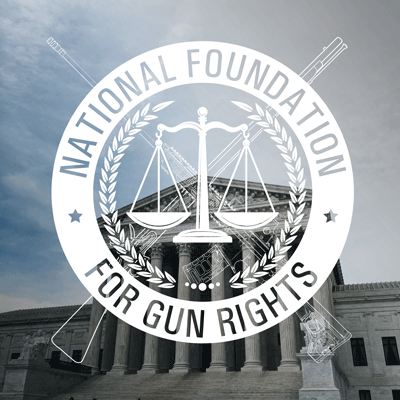
September 9, 2023
Albuquerque, NM – Today, the National Association for Gun Rights (NAGR) and Foster Haines (NAGR member and Albuquerque resident) filed a lawsuit against Governor Michelle Lujan Grisham and Secretary of Health Patrick Allen for Executive Order 2023-130 and a subsequent Public Health Emergency Order issued by the Secretary, which bans the public carry of firearms in Albuquerque for 30 days.
Plaintiffs are asking for a Temporary Restraining Order and a repeal of the Order.
NAGR argues the Order is unconstitutional on the merits of the Supreme Court’s ruling NYSRPA v. Bruen, which held New York’s ban on the public carry of firearms unconstitutional. Bruen also held that any gun regulation that does not fall into the text, history, and tradition of the Second Amendment is unconstitutional.
“Gov. Luhan Grisham is throwing up a middle finger to the Constitution and the Supreme Court,” said Dudley Brown, President of the National Association for Gun Rights. “Her Executive Order is in blatant disregard for Bruen. She needs to be held accountable for stripping the God-given rights of millions away with the stroke of a pen.”
Gov. Luhan Grisham declared a state of emergency over “gun violence” and used emergency powers to carry out the ban.
“This is the very danger of runaway executives who believe they have unilateral authority to suspend the Constitution under the guise of an ‘emergency,’” continued Brown. “This is exactly what we warned about during COVID. It’s a tale as old as time, give emergency powers, lose fundamental rights. Google ‘Caesar’ if you want to know how that turns out.”
The National Association for Gun Rights argues Gov. Lujan Grisham overstepped her Constitutional authority in issuing Executive Order 2023-130 and looks forward to its day in court.
Links to Complaint and TRO:
Complaint: http://gunrightsfoundation.org/wp-content/uploads/Complaint-1.pdf
TRO motion: http://gunrightsfoundation.org/wp-content/uploads/Motion-for-TRO.pdf
The National Association for Gun Rights is the nation’s largest “no compromise” pro-gun organization, with 4.5 million members nationwide.
###






